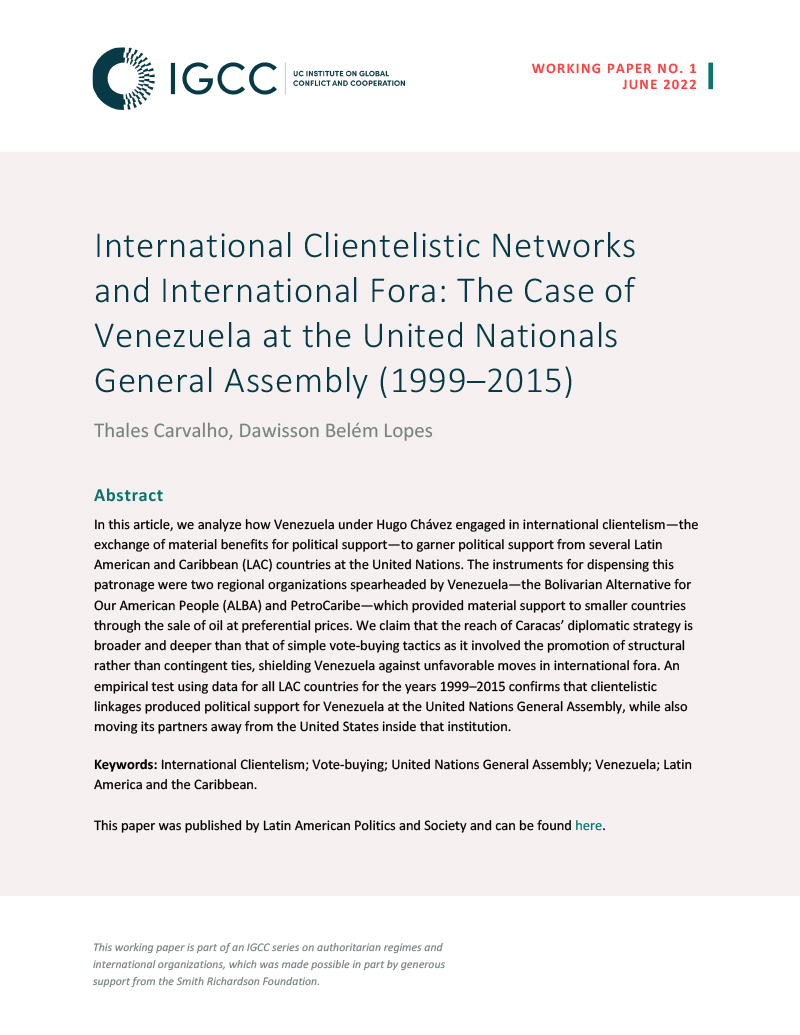International Clientelistic Networks and International Fora: The Case of Venezuela

In this working paper, Thales Carvalho, a PhD student in Political Science at the Federal University of Minas Gerais, and Dawisson Belém Lopes, professor of International and Comparative Politics at the same university, present their research about how clientelistic linkages produced political support for Venezuela at the United Nations General Assembly, while also moving its partners away from the United States inside that institution.
DownloadIn this article, co-authors Thales Carvalho and Dawisson Belém Lopes (Federal University of Minas Gerais) analyze how Venezuela under Hugo Chávez engaged in international clientelism—the exchange of material benefits for political support—to garner political support from several Latin American and Caribbean (LAC) countries at the United Nations. The instruments for dispensing this patronage were two regional organizations spearheaded by Venezuela—the Bolivarian Alternative for Our American People (ALBA) and PetroCaribe—which provided material support to smaller countries through the sale of oil at preferential prices. They claim that the reach of Caracas’ diplomatic strategy is broader and deeper than that of simple vote-buying tactics as it involved the promotion of structural rather than contingent ties, shielding Venezuela against unfavorable moves in international fora. An empirical test using data for all LAC countries for the years 1999–2015 confirms that clientelistic linkages produced political support for Venezuela at the United Nations General Assembly, while also moving its partners away from the United States inside that institution.
This paper was published by Latin American Politics and Society and can be found here.